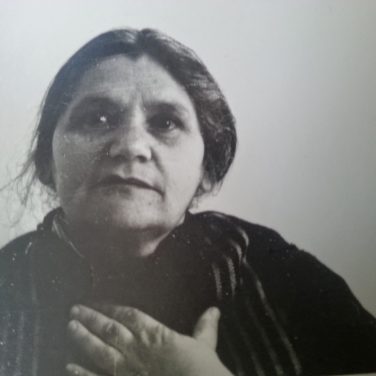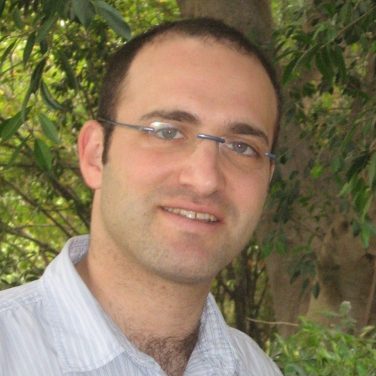The terrible thirst for grace
Bacol Serlui writes about Tirza Atar
 כל העולם מבעד לחלון הופך למסגרת שליבה געגועים. צילום: twenty20photos, Envato Elements. צילום תרצה אתר: באדיבות משפחת סלור
כל העולם מבעד לחלון הופך למסגרת שליבה געגועים. צילום: twenty20photos, Envato Elements. צילום תרצה אתר: באדיבות משפחת סלור
Rain, Listen to the Women
Tirza Atar
Translation – Lisa Katz
Before night falls rain,
listen to the women at the window
before it gets dark. Rain, listen
to the women who watch at the curtains.
Within us too the earth waits
for something from above.
Within us too, fear and a cry
at something that grows…and so forth…
Before the week ends, rain,
listen to the women at the window,
before a fortnight goes by. Rain, listen
to the women who stand and wait.
We too have a small yard
lacking the brilliance of a lawn,
we too watch until we are witless
for something blessed like rain.
Within us too, waiting silently,
a small piece of earth, desolate.
And our rain is late in falling.
Our rain
has not yet arrived.
But our rain will come. Clouds are raging in the distance.
Our rain approaches, approaches
in giant steps.
Listen to the women at the window.
Marvelous, pouring rain.
Listen, how each calls out to the other –
he is back
he is back
the rain is back.
Before night falls
rain, listen to the women at the window
before it gets dark. Rain, listen
to the women who watch at the curtains.
We live in a world in which it is embarrassing to talk about need. It is embarrassing to feel how much we are lacking, how much we depend on something or someone outside who will redeem and heal us. We have learned to be independent, to look out for ourselves, to supply our needs with ease. The body is satisfied, the mind is taken care of, the body is nurtured. But the heart, what about the trembling heart? What about the soul, in need of an embrace? We walk the world with a terrible thirst for kindness, not daring to ask, to admit how eager the heart is. To feel means that we will develop a terrible sense of vulnerability, that others might see the pain and treat it roughly. It is better to be silent, to bear the hunger, to be content with the crumbs that are thrown to us from time to time. Not to reveal the waiting, the longing, the heart cracking from thirst, from longing. But there are great poets who remind us, and dare to express what the heart cannot explain:
Within us too the earth waits
for something from above.
Within us too, fear and a cry
at something that grows… and so forth…
Like the earth awaiting the mighty, wondrous grace that will descend upon it from above, we too anticipate the revelation of love in the rain, in the abundance that is given. Tirza Atar captures a fine moment here like no other: a moment of waiting and anticipation. A moment when the entire world through the window becomes a frame with a core of longing. What a fear it is, to be so needy; the heart cries out, and the whole world is the trembling echo of the cry.
Within us too, waiting silently,
a small piece of earth, desolate.
And our rain is late in falling.
Our rain
has not yet arrived.
In the Zohar there is a division between two types of the appearance of abundance in the world: female waters and male waters, that crave each other. The female waters – mayim nukvin – are supposedly in our world, and express passion and a need for connection and pleasure, arriving and bursting upwards to a supreme being; this awakening evokes and gives birth to the abundance and supreme desire, masculine in essence, called mayim duchrin – male water. The passion of the feminine side arouses the supreme abundance, and contains within it redemption for the whole world: in a state of connection, pleasure and fulfillment of desire are born.
As in Rabbi Nachman’s tale of the loss of the king’s daughter, in which the viceroy was required to yearn for the princess for many years, without a break, in order to free her from prison, yearning and longing have the power to redeem the object and subject of desire. Sometimes it is necessary to allow time for yearnings: who knows how much our pining may heal reality; how much our longing is able to give birth to abundance and pleasure for the world.
We too have a small yard
lacking the brilliance of a lawn,
we too watch until we are witless
for something blessed like rain.
The Sages made a connection between rainfall and the woman’s cry. In the Gemara, Masechet Taanit (Daf 2a) it is written: “Rabbi Yochanan says: There are three keys in the hands of the Holy One, Blessed be He, which were not given to an intermediary, and these are they: the key of rain, the key of birthing, and the key of resurrection of the dead.” Birthing is the mother in labor crying out in her agony, and feeling that nature holds no salvation for her. Rain is the grace we seek for the world, to saturate the earth and the thirsty soul. Resurrection of the dead is the expectation of a world in which giving birth does not bring loss. Common to all of these is man’s absolute dependence on supreme grace: all that is required of him, of her, is to believe and wait, to need and ask.
Every loving woman understands what Tirza Atar is talking about. There are more than seven billion people in the world, and you are waiting for the one who is yours. You listen for his steps, his approaching voice, you know that there is a thirst that only he can quench, a touch that only he can give, a look that only he can give. Every woman waiting for kindness and the rain knows: there is a drop that is just yours, an inundation that is waiting just for you, because only you are waiting for it. In the power of your love and your yearnings.
But our rain will come.
Clouds are raging in the distance.
Our rain approaches, approaches
in giant steps.
Listen to the women at the window
Marvelous, pouring rain.
Listen, how each calls out to the other –
he is back
he is back
the rain is back.
*Poem translated by Lisa Katz
Bacol Serlui is a poet and teacher of literature. She teaches literature at the Or Torah school, and poetry writing at the Hebrew University of Jerusalem. She writes the column “Omeret Shira” (Speaking Poetry) in the Shabbat supplement of the “Makor Rishon” newspaper.

באדיבות משפחת סלור






